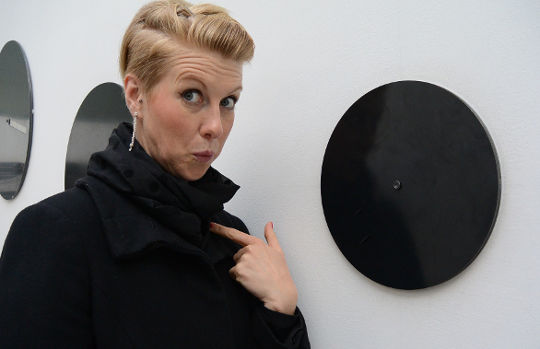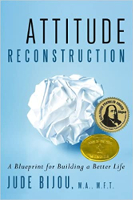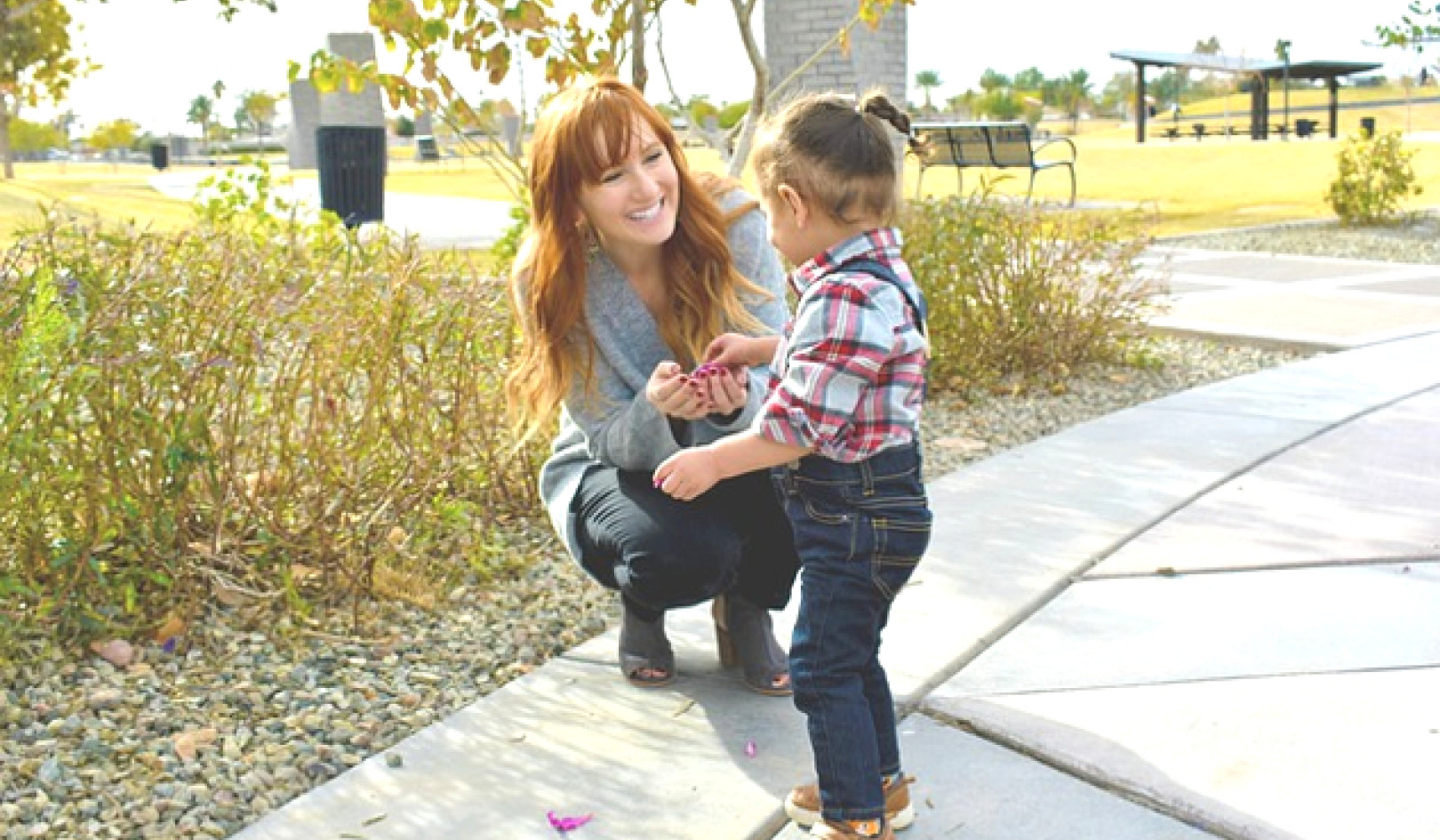
Image by Sarah Lötscher
I heard an interesting theory about egoism a while back... "Egoism is the root of all conflict in the world." Intuitively that makes perfect sense.
Conflict stems from the belief that one person or group possesses superior knowledge and that they have the right to impose their views on others. This righteousness sets the stage for a "you vs. me" mentality that leads to feelings of separateness. Differences are accentuated and vilified. We are ready and willing to fight for our way. In the process our similarities, our humanness, and what we all share in common gets lost in the mix.
It can be easy for someone who finds themselves in the role of caretaker to grapple with feelings of guilt and egotism when they yearn to put themselves first. Or someone who studies to get into medical school and neglects their social relationships to feel bad about themselves. Or someone who takes a new job which requires them to move away and feels like they are abandoning their old workmates.
What's the difference?
Let's explore the difference between taking care of oneself and being egotistical. I'll offer practical suggestions for those who lean towards the “me at others' expense” attitude.
I’ll begin by translating egoism into the Attitude Reconstruction model. There are four core attitudes associated with the emotion of anger. First, is a tendency to focus outside yourself onto other people, things, and situations. Second, you don't accept these people, things and situations the way they are. Third, you judge the differences between yourself and others negatively, focusing on what you don't like. And fourth, you believe if others could just see things the way you do and agree (you being right and superior), then things would be hunky-dory. Attitude number four is completely self-centered, another word for egotistical.
Could you have an egotistical attitude?
If you can visualize the following descriptions characterizing someone you know, (or yourself), then they/you deserve the term EGOTISTICAL.
* Act stingily, greedily, possessively. Withhold yourself and your time, money, or information believing accumulation brings safety, security, increased prestige, power, and self-worth.
* Look for what's in it for you, feel like it is "you vs. me."
* Thinking, talking, and giving with strings attached, and/or for selfish motives.
* Do what you want, regardless of how it affects others, "me me me."
* Over-react if people don't agree with you, and distance yourself.
What's the cost?
What is the cost of possessing such an attitude? You will lose feelings of joy and love. When you possess this attitude, you create feelings of separation and distance, and make an emotional connection impossible. You lose genuine closeness because you're preoccupied with protecting what you believe and have.
Deep down, underneath your "me, me, me" behavior, you feel insecure, scared, and isolated, without an anchor. You've lost your sense of self as something whole and complete, independent from your actions, possessions, and accomplishments.
When you realize that feeling superior or special is an illusion that covers deeper feelings of unworthiness and insecurity, you've taken your first step to transformation.
The Rx for an Egotistical Attitude
I see a two-pronged attack to combat an egotistical attitude.
One strategy is to give generously, and this can take many forms. Practice acts of selfless giving, repeat for weeks or longer until it becomes natural, "Fake it 'til you make it." It's okay to pretend until your old selfishness dwindles away, and your heart opens up once again.
You can:
* Stop giving unsolicited advice and ignoring the wishes and opinions of others.
* Give material things, like gifts, flowers, money, cards, etc.
* Ask, "How can I help?" and carry through on promises you make
* Volunteer for a constructive cause
* Become a mentor, share your skills, experience, and knowledge with others
* Be affectionate. Genuinely use words of endearment, like honey, sweetie, dear
* Give loving looks, warm smiles, non-demanding hugs
* Give sexually without expecting anything in return
* Be generous with appreciations, praise, and applause
* Appreciate those who feel sad, understand those who feel angry, and reassure those who are fearful (extend the three communication bridges)
* Be welcoming and friendly. Take the initiative and express a heartfelt greeting ("I'm so glad to see you.")
* Listen with an open heart and without thinking about answers or solutions.
* Think loving thoughts throughout the day (see below)
* Speaking honestly about personal matters
* Give thanks, silently and out loud
The second strategy is to surrender the habit of having things "your way." Practice looking at life and making decisions based on what's best for the whole: family, community, and planet. Cooperate, collaborate, and compromise. Teamwork is more cumbersome because you have to integrate divergent perspectives and desires but it's fun and creates a connection with others and life.
The third way to chip away at this attitude is to interrupt your me-first thoughts and continually repeat to yourself something along the lines of:
Helping you is helping me.
Love first.
I wish you well.
Whenever you start to feel pushy, righteous, entitled, or suspect you are being self-centered, you can distinguish if a given action is driven by selfish motives or not, by pausing, consulting your intuition, and obeying whether it feels right in your heart.
Sometimes you need to honor what's best for yourself, your spirit, your health, your psyche, and that can feel selfish. Learning to tap into your heart and speak and act from there is the surefire way to monitor who is driving your boat. Remember to ask yourself, does a given action produce genuine feelings of joy, love, and peace?
©2022 by Jude Bijou, M.A., M.F.T.
All Rights Reserved.
Book by this Author:
Attitude Reconstruction
Attitude Reconstruction: A Blueprint for Building a Better Life
by Jude Bijou, M.A., M.F.T.
 With practical tools and real-life examples, this book can help you stop settling for sadness, anger, and fear, and infuse your life with joy, love, and peace. Jude Bijou's comprehensive blueprint will teach you to: ? cope with family members' unsolicited advice, cure indecision with your intuition, deal with fear by expressing it physically, create closeness by truly talking and listening, improve your social life, increase staff morale in just five minutes a day, handle sarcasm by visualizing it flying by, carve out more time for yourself by clarifying your priorities, ask for a raise and get it, stop fighting via two easy steps, cure kids' tantrums constructively. You can integrate Attitude Reconstruction into your daily routine, regardless of your spiritual path, cultural background, age, or education.
With practical tools and real-life examples, this book can help you stop settling for sadness, anger, and fear, and infuse your life with joy, love, and peace. Jude Bijou's comprehensive blueprint will teach you to: ? cope with family members' unsolicited advice, cure indecision with your intuition, deal with fear by expressing it physically, create closeness by truly talking and listening, improve your social life, increase staff morale in just five minutes a day, handle sarcasm by visualizing it flying by, carve out more time for yourself by clarifying your priorities, ask for a raise and get it, stop fighting via two easy steps, cure kids' tantrums constructively. You can integrate Attitude Reconstruction into your daily routine, regardless of your spiritual path, cultural background, age, or education.
For more info and/or to order this book, click here. Also available as a Kindle edition.
About the Author

Jude Bijou is a licensed marriage and family therapist (MFT), an educator in Santa Barbara, California and the author of Attitude Reconstruction: A Blueprint for Building a Better Life.
In 1982, Jude launched a private psychotherapy practice and started working with individuals, couples, and groups. She also began teaching communication courses through Santa Barbara City College Adult Education.
Visit her website at AttitudeReconstruction.com/






























